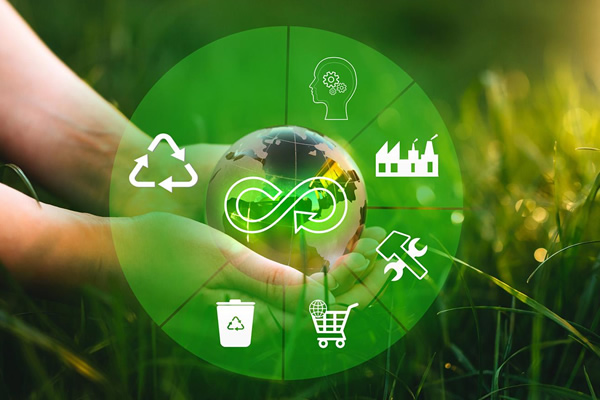
The world of business is evolving, and so is the way we source and procure goods and services. Welcome to the realm of sustainable procurement, an ethical sourcing practice that is reshaping the corporate landscape. In this article, we’ll embark on a comprehensive journey to understand the basics of sustainable procurement and why it’s the cornerstone of responsible businesses in today’s global marketplace.
The Basics of Sustainable Procurement
-
Defining Sustainable Procurement
Sustainable procurement, also known as green or ethical procurement, is a strategic approach that goes beyond cost savings and profit margins. It seeks to integrate environmental, social, and ethical considerations into the procurement process. This means that businesses not only assess the immediate economic benefits but also the long-term consequences of their purchasing decisions.
-
Why It Matters for Businesses
The significance of sustainable procurement lies in its potential to drive profitability while making a positive impact on the planet and society. Businesses are increasingly recognizing that a focus solely on the bottom line is no longer sustainable in the face of growing environmental concerns and heightened social awareness. Sustainable procurement enables companies to align their values with their sourcing decisions.
-
Benefits of Sustainable Procurement
Sustainable procurement yields a myriad of benefits, both tangible and intangible. It enhances a company’s reputation, attracts socially conscious customers, and fosters employee pride. Additionally, it can lead to cost savings through reduced waste, resource efficiency, and the creation of more durable products. In the long run, this approach can open up new markets and provide a competitive edge.
The Ethical Dimension
Ethical Sourcing Defined
Ethical sourcing is a fundamental aspect of sustainable procurement. It involves procuring goods and services in a manner that respects human rights, promotes fair labor practices, and ensures that supply chains are devoid of exploitation, discrimination, or any form of unethical behavior. This extends to the environmental sphere, where ethical sourcing involves minimizing ecological harm.
The Global Impact of Ethical Sourcing
The reach of ethical sourcing transcends borders. In a globalized world, products and services often have complex supply chains that span multiple countries. Ethical sourcing seeks to guarantee that, regardless of where a product is sourced, it complies with internationally recognized ethical standards, ensuring that it’s ethically produced and traded.
Ethical Sourcing vs. Traditional Procurement
Traditional procurement often focuses on short-term financial gains, sometimes at the expense of ethics and sustainability. Ethical sourcing, on the other hand, marries economic considerations with a sense of responsibility towards the planet and its inhabitants. It prioritizes the welfare of workers, the conservation of natural resources, and the reduction of adverse environmental impacts.
Environmental Considerations
- Reducing Carbon Footprint – One of the primary environmental goals of sustainable procurement is to reduce the carbon footprint associated with the production and transportation of goods. This involves assessing suppliers not just for the quality of their products but also for their commitment to sustainable practices that minimize emissions and energy consumption.
- Sustainable Packaging Solutions – The packaging industry plays a significant role in environmental degradation. Sustainable procurement encourages businesses to select suppliers that utilize eco-friendly packaging materials and practices, such as biodegradable materials, reduced packaging, or reusable alternatives.
- Biodiversity and Procurement – Sustainable procurement also takes into account the impact on biodiversity. Companies assess their suppliers’ practices to ensure they don’t contribute to deforestation, habitat destruction, or the over-exploitation of natural resources. This helps preserve ecosystems and the countless species that rely on them.
Social Responsibility
Fair Labor Practices
Ethical sourcing extends to the treatment of workers throughout the supply chain. This means ensuring fair wages, safe working conditions, and respect for workers’ rights. Companies committed to sustainable procurement prioritize suppliers who uphold these standards.
Ethical Treatment of Workers
Beyond fair wages, ethical treatment encompasses freedom from discrimination, child labor, and forced labor. Ethical sourcing aims to eradicate such practices from supply chains, promoting humane working conditions and respect for human dignity.
Community Engagement
Sustainable procurement goes beyond individual workplaces to consider the broader communities where businesses operate. It involves supporting local communities, contributing to their well-being, and fostering positive relationships through responsible procurement.
Economic Viability
Long-term Cost Savings
While the immediate costs of sustainable procurement may seem higher, the long-term savings can be substantial. Efficient resource use, reduced waste, and sustainable practices often result in economic advantages over time.
Market Expansion
Sustainable procurement can open doors to new markets and consumers who prioritize ethically sourced products. Companies embracing sustainability find themselves better positioned in a world where consumers are increasingly conscious of their choices.
Consumer Preference
Today’s consumers are more informed and discerning than ever. They prefer businesses that demonstrate a commitment to ethical sourcing and sustainability. Catering to this consumer preference is not only ethical but also good business sense.
Legal and Regulatory Framework
International Laws and Standards
The world has recognized the importance of sustainable procurement, resulting in the creation of international laws and standards that govern ethical sourcing. Familiarizing oneself with these regulations is essential for companies committed to responsible procurement.
Compliance and Accountability
Compliance with these laws and standards is vital. Ethical sourcing requires monitoring suppliers, ensuring their adherence to ethical guidelines, and holding them accountable for any violations.
Consequences of Non-Compliance
Non-compliance with ethical sourcing standards can lead to legal repercussions, damage to a company’s reputation, and loss of trust from consumers. The consequences of failing to embrace sustainable procurement can be severe.
Implementing Sustainable Procurement

Setting Clear Objectives
The journey to sustainable procurement begins with clear objectives. Companies need to define their sustainability goals, develop strategies to achieve them, and communicate them to both employees and suppliers.
Supplier Engagement
Engaging with suppliers is a critical component. Companies must work closely with their suppliers to align on sustainability goals, collaborate on implementing changes, and continuously assess their performance.
Monitoring and Reporting
Sustainability progress should be monitored and reported transparently. This demonstrates a commitment to improvement and allows stakeholders to track a company’s ethical sourcing journey.
Case Studies
- Companies Leading the Way
Several companies have successfully integrated sustainable procurement into their business models. Examining their stories can provide valuable insights and inspiration for others. - Notable Success Stories
Case studies of notable success stories in sustainable procurement highlight the tangible benefits and positive impact on businesses and society. - Lessons Learned
Learning from both the triumphs and challenges of others can expedite the adoption of sustainable procurement practices, minimizing mistakes and maximizing success.
Challenges and Roadblocks
Resistance to Change
Adopting sustainable procurement practices often encounters resistance from within an organization. Overcoming this resistance requires strong leadership, education, and a compelling case for change.
Cost Concerns
Initial costs can be a barrier, but it’s crucial to understand the long-term economic benefits. Sustainable procurement can lead to significant cost savings over time, making the initial investments worthwhile.
Supply Chain Complexity
Modern supply chains are intricate and global. Managing them in a sustainable and ethical manner is a complex task, but one that’s essential for responsible businesses.
Tools and Resources
Procurement Software
Utilizing specialized software can streamline sustainable procurement efforts, making it easier to track and manage suppliers, measure sustainability performance, and ensure compliance with ethical standards.
Certification Programs
Various certification programs, such as Fair Trade or organic certifications, can guide businesses in selecting ethical suppliers and products. These certifications provide a level of assurance for consumers.
Industry Associations
Many industry-specific associations offer resources, guidelines, and support for businesses looking to engage in sustainable procurement. They can be valuable partners on the journey towards ethical sourcing.
Measuring Impact
-
Key Performance Indicators
To assess the effectiveness of sustainable procurement, companies establish key performance indicators (KPIs) related to environmental, social, and economic impacts. These KPIs help gauge progress and identify areas for improvement.
-
Data Collection and Analysis
Data collection is essential for measuring the impact of sustainable procurement. Gathering and analyzing data related to supplier practices, sustainability metrics, and performance against KPIs is crucial.
-
Continuous Improvement
Sustainable procurement is an ongoing process. Companies must continuously review and enhance their practices, responding to changing circumstances and emerging ethical challenges.
Collaborative Procurement
Partnering with Suppliers
Collaboration with suppliers goes beyond compliance. It involves forming strategic partnerships to innovate and drive positive change in sustainability and ethics.
Industry Collaborations
Companies can collaborate with other industry players to leverage collective power and drive ethical sourcing practices on a broader scale, creating industry-wide impact.
Driving Positive Change
Collaborative procurement efforts aim to create a ripple effect, influencing not only individual companies but entire industries and supply chains towards sustainability and ethical behavior.
The Role of Technology
- AI and Sustainable Procurement
Artificial intelligence (AI) is increasingly being harnessed to optimize sustainable procurement efforts. AI can analyze data, identify trends, and provide insights that aid in responsible sourcing decisions. - Blockchain in Supply Chains
Blockchain technology offers transparency and traceability throughout supply chains, enhancing the ability to verify the ethical and sustainable origins of products. - Cloud-Based Solutions
Cloud-based procurement solutions provide flexibility and scalability, allowing companies to adapt to changing sustainability and ethical requirements.
Stakeholder Engagement
Engaging Customers
Sustainability and ethical sourcing are often selling points for consumers. Engaging with customers through education, communication, and responsiveness to their concerns can build brand loyalty.
Employee Involvement
Employees are crucial stakeholders in a company’s sustainability efforts. Engaging employees, making them part of the journey, and encouraging their input can enhance the effectiveness of sustainable procurement.
Transparency and Accountability
Stakeholders, whether they are customers, employees, or investors, value transparency and accountability. Companies that openly communicate their efforts and challenges in sustainable procurement build trust.
The Circular Economy

Reuse, Recycle, and Reduce
The circular economy is a concept that promotes the reuse, recycling, and reduction of materials and waste. Embracing this model aligns with sustainable procurement by reducing resource consumption and waste.
Extended Producer Responsibility
Extended producer responsibility (EPR) places the onus on manufacturers to manage the entire life cycle of their products, from production to disposal, ensuring sustainability and ethical practices.
Closing the Loop
Closing the loop involves ensuring that products and materials are continuously recycled and repurposed, minimizing the environmental impact of disposal and waste.
Global Supply Chain Considerations
Sourcing Locally
Local sourcing is a sustainable procurement strategy that reduces transportation-related emissions and supports local economies. It’s a practical way to combine ethical and sustainable sourcing with community engagement.
Ethical Sourcing Globally
While local sourcing has its advantages, some products are only available from global suppliers. Ethical sourcing at a global level requires rigorous supplier assessments and adherence to international ethical standards.
Geo-Political Factors
Sourcing ethically on a global scale requires navigating geopolitical challenges, such as labor practices, environmental regulations, and political stability in different regions.
Risk Management
- Identifying Risks – Identifying potential risks in the supply chain, whether they are related to ethical violations, environmental issues, or economic uncertainties, is a crucial aspect of sustainable procurement.
- Mitigation Strategies – Sustainable procurement is not just about identifying risks but also proactively developing strategies to mitigate them. This includes contingency plans for supply chain disruptions and ethical breaches.
- Contingency Planning – Companies must prepare for unforeseen events that could disrupt the supply chain. Contingency plans help maintain ethical sourcing and sustainability during emergencies.
Small and Medium Enterprises (SMEs)
Challenges and Opportunities
Small and medium enterprises often face unique challenges in adopting sustainable procurement practices. However, they also have opportunities to be agile, responsive, and innovative in their approach.
Support Mechanisms
Government incentives, industry partnerships, and resource sharing can provide SMEs with the support needed to navigate the complexities of sustainable procurement.
Building Sustainable Practices
SMEs can build ethical and sustainable practices into their core operations, creating a competitive advantage while contributing to a better future.
Government Initiatives
- Government Incentives
Many governments offer incentives and support for businesses that embrace sustainable procurement. These incentives can include tax benefits, grants, and preferential treatment in government contracts. - Procurement Regulations
Governments also set regulations and requirements for ethical sourcing in public procurement. Businesses must familiarize themselves with these regulations to access government markets. - Public-Private Partnerships
Collaborations between governments and businesses in the realm of sustainable procurement can lead to significant positive impacts, driving sustainability on a larger scale.
Future Trends
Innovations in Procurement
Innovation in sustainable procurement is a continuous process. Stay ahead by keeping an eye on emerging technologies and trends that can enhance your ethical sourcing practices.
Climate-Positive Procurement
As climate change intensifies, climate-positive procurement is gaining traction. Companies are focusing on sourcing goods and services in ways that actively combat climate change.
Beyond 2030
The future of sustainable procurement is bright and promising. Beyond 2030, we can expect further advancements in technology, a more comprehensive embrace of sustainability, and a deeper commitment to ethical sourcing.
Best Practices
- Leading by Example
Leading businesses are setting the standards for sustainable procurement. By following their lead and embracing best practices, other companies can make a significant impact. - Continuous Education
Staying informed about the latest trends, regulations, and technologies in sustainable procurement is crucial for businesses committed to ethical sourcing. - Corporate Responsibility
In the end, sustainable procurement is a reflection of a company’s commitment to corporate responsibility. It’s not just about profits; it’s about leaving a positive legacy for future generations.
Conclusion: The Path Forward
Sustainable procurement is not a mere trend but a transformative shift that will define the business landscape of the future. It is a journey of embracing ethical values, environmental stewardship, and social responsibility, all while maintaining economic viability. As businesses navigate the complexities of the global marketplace, they must recognize the power they hold in shaping a more sustainable and ethical world. Sustainable procurement is the path forward to creating a responsible, prosperous, and harmonious future.


